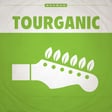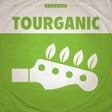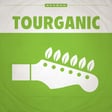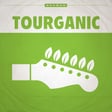Introduction to the Torganic Path Podcast
00:00:01
Speaker
Welcome to the Torganic Path.
Holistic Health Approaches
00:00:08
Speaker
This is the tourganic podcast and I am your host David Bayless. In the podcast I speak with touring musicians about how they live a healthy lifestyle on the road. While many of the conversations are about how and why my guests live a plant-based vegan diet on the road, the content of these conversations has a diverse and holistic approach to focus on health of mind, body, and spirit.
Podcast Hiatus Explanation
00:00:28
Speaker
Apologies for the gap in time between the last pod, but as much as I want to get these out faster sometimes life
David's Athletic Pursuits
00:00:33
Speaker
away, touring, kids, athletic training, and work has been consuming for the past couple months, but all these are good things.
Noga Sheffi's Health Journey
00:00:41
Speaker
I had a great IRONMAN 70.3 race a few weeks ago, and I'm continuing to train for a bunch more tries this season, as well as the NYC Marathon in the fall. I'm happy to present this episode featuring bass player Noga Sheffi, who now holds down the low end for the insanely creative powerhouse band, Rubble Bucket. Noga's story is one of twists and turns, starting from growing up in Israel
00:01:01
Speaker
to moving to the States as a young musician along the way. A journey to discover how to live a healthy life with Crohn's disease, Noga amazingly has pretty much reversed the effects of the disease through an intense focus on diet. In this episode we speak about her experience in treatment from that diagnosis, healing through meditation and yoga, the concept of curing through food without the use of pharmaceutical interventions such as steroids and immunosuppressants that are typically used to treat Crohn's.
00:01:28
Speaker
the gut brain connection and how she stays healthy and feeling good on the road on a day to day basis. If you dig the podcast, please subscribe on iTunes or wherever you get your podcasts and leave a rating and a comment as well. It would be so appreciated.
Noga's Musical Journey from Israel to Boston
00:01:42
Speaker
Without further ado, let's get into it.
00:01:48
Speaker
If we could just for a minute just talk a little bit about where you come from and I know you've had a cool journey in your life. You grew up in Israel, right? Yep. And you came here for school? I came here for school about nine years ago. Okay. Was that to Boston? That was in Boston, yeah. Berkeley College of Music. How come you decided to leave Israel?
00:02:15
Speaker
I was in music school over there and I wanted to keep developing that and maybe go continue my education, you know, the school I went to.
00:02:31
Speaker
Back home, Riemann School of Music is, I don't know if it's completely true to say it's as high as it gets, but there's a lot of talk of a lot of other musicians I know that continues their education abroad. There's a lot of talk about that. People going to study in Europe, people going to New York and Boston, and then Berkeley. I don't know if they still do it. I'm assuming they still do it. World Scholarship Tour, where they travel around the world and they audition
00:03:00
Speaker
musicians who might want to attend Berkeley. So they came to Ramon to the school where I went to back home. I auditioned. I got a nice scholarship that basically allowed me to do this and I just decided to go for it. Nice. What was the scene like in Israel?
00:03:20
Speaker
The music scene? Yeah, for you. Not even necessarily some overall summation, but just for you as a player coming up. Was it awesome? Was there great players and what kind of stuff were you playing? There was always great players. I think at the time I was pretty young because I left Israel when I was 21.
00:03:38
Speaker
All these years after high school and through Ramon, I was gigging with a lot of different people, like original music, all different styles. Always playing electric bass. Always playing electric bass, yeah. Nice. Yeah. And did you have to serve the army thing? Yeah.
Managing Crohn's Disease through Lifestyle Changes
00:03:58
Speaker
You did? Yeah. Yeah, that's no joke. Everybody has to do it. Everyone has to do it, yeah. What was that like?
00:04:09
Speaker
surreal yeah I think we take it for granted in the US that we don't have to think about that yeah we don't
00:04:20
Speaker
those of us that my stepbrother, he's in the military, but it's obviously, it's a totally voluntary thing, and to me, I can't even imagine it. I totally respect everyone who does it, but in the same breath, it's such a crazy idea that I just, especially back then, that was not what I was about, to put it simply, but then to think that it would be mandatory. Yeah, that was not what I was about either.
00:04:49
Speaker
But you stuck it out. Well, to be honest, I didn't finish my service. Girls are supposed to do two years and guys are supposed to do three years. OK. But I didn't finish my two years. I found a way out. OK. You got creative. I got creative.
00:05:09
Speaker
Nice. Because yeah, it's full on. You're like shooting guns and doing. Yeah. In basic training, it's full on. I guess it depends on what sort of a position you're aiming to get or assigned to. Yeah. So I was in a general basic training, which means you don't know what you're going to do afterwards. You're just doing basic training for a month. You know, sleeping in tents, groups of girls, commanders yelling at you to run around and learning how to
00:05:38
Speaker
shoot the M16 and the whole thing. Is there any music happening there at all? Playing music? During basic training, not much now. Can you play? Can you practice at night or anything? Probably not. You don't have much free time and if you do you're really exhausted so you just want to go to sleep because you're gonna have to get up at five again.
00:06:02
Speaker
So from there, you finish that, and then that's when you go into music school in Israel, or was that right around when you transitioned out to Berkeley, to Boston? No. So after basic training, I did do part of the service for a few months. That wasn't quite like the basic training. So I did get a chance to play music. I would get home late, and I would rehearse with different bands into the night, and then would wake up at 5 AM again to go to the military.
00:06:30
Speaker
That went on for a few months. But after I was finished with that, I went to Ramon. Yeah. And do you think that there are some positives that came out of? Definitely. Some incredible things. Some amazing friends that I met back then. Just learning about history, geography, tanks.
00:06:51
Speaker
and let's just take a minute and just talk about your health journey because I'm actually curious if when you're in the army was there any special attention that you had to but like let's just before we even do that just take it back so you've had this issue with your stomach right yeah but that happened after the army actually oh no way during the army um i wasn't as health conscious i think i was just uh
00:07:16
Speaker
Young kid. Extraordinary youngster. Eating pretty unhealthy food in the army and just eating just normal stuff. I don't know what's considered normal. So that developed your, is it?
00:07:30
Speaker
It's maybe it's related. Um, yeah. Yeah. Later I started having, uh, I guess we can call it stomach stuff that later was diagnosed as Crohn's, which led me to become way more health conscious, change my diet. Is that common to have it a diagnosis later in life?
00:07:49
Speaker
I think that's around the age where it's most common, although some people have that as kids as well. Okay. And so basically it just started manifesting because you were feeling super uncomfortable. Yeah.
00:08:03
Speaker
Yeah, like my body was not happy digesting anything. And at first I thought it was just maybe a bug or something, and it just went on and on. So I continued getting examinations of all sorts until we get the diagnosis. And what physically is happening in Crohn's? Is there a bacteria thing? I think in terms of symptoms, it's very different for different people. What is happening is that you have inflammation in your intestines.
00:08:34
Speaker
just inflammation right so uh it's it's from the same family as celiac and other diseases of the digestive tract so i think in terms of diseases in general all the names of different diseases are just a name to describe where the inflammation is yeah you know i think you're right in general so much disease is a result of inflammation in the body yeah yeah
00:09:01
Speaker
So these symptoms start to manifest in your early twenties. We're talking something like that mid twenties and you're just trying to figure out what's going on. All of a sudden you're not digesting food, which probably affects your life, your mental state is in so many different ways. Cause you know, if you're not feeling good, it just affects every aspect of you. Yeah. And you're losing weight and you're exhausted. Right. So,
00:09:30
Speaker
you get that initial diagnosis, then what happens? Then the doctor that gives me the diagnosis is a very, how do you say, ordinary is not the word, conventional. And he just gives me a bunch of antibiotics.
00:09:48
Speaker
And as soon as I start taking them, I realize that this is making everything worse. And I decide on my own to stop taking the medicine, all the different kinds of medicine that I received. And right away, I feel much better.
00:10:03
Speaker
It's not like everything was solved, but just by stopping the medicine that was prescribed, the pharmaceuticals and the antibiotics and stuff. And they also give steroids to people. I wasn't taking steroids. I think I was just trying different antibiotics that are pretty strong.
00:10:21
Speaker
And so I went to, I was seeking a second opinion. So I went to see a different gastroenterologist who was mentioning something about a diet in combination with a different kind of antibiotic. And he also really scared me and made me stop smoking. Oh yeah, I was smoking cigarettes at the time. So inspired by that doctor, professor, I should say,
00:10:48
Speaker
Aria Levy. I started a diet, which was something he suggested with kind of like my own variation on it, minus the antibiotic that he gave me. You just didn't take that. I took it for one day and started getting sick right away. Yeah. And I stopped it.
00:11:08
Speaker
And so let's talk about that diet. Yeah. So that diet at the time was very strict and kind of weird, but it was basically just cleaning out everything. Um, I wasn't vegetarian at the time, so it was something like white rice, maybe eggs, potatoes without the shell, boiled chicken,
00:11:36
Speaker
peeled cucumber, something like that. And that was it for your 24 hour day. He also suggested that I take, drink these cans of, and sure, I don't know how it's called, it's supposed to give you like, proteins or something. But that stuff didn't sit well, so I didn't do that. Yeah, that's pretty processed. Versus everything else he suggested, which is very simple foods.
00:12:00
Speaker
Um, that seems sort of logical
Exploring Nutrition and Gut Health
00:12:03
Speaker
just to at least limit the amount of stuff your body's processing and simplify everything down. Yeah. I think eliminate a lot of the foods that cause inflammation, you know? So is that what in your mind or I don't know if there's a doctor, if there's any sort of theory, but it, what do you think caused it caused the Crohn's? Um,
00:12:29
Speaker
I think that's a pile of conditions. You can't point to one thing. I can't point to one thing. It's a bunch of forces. It's a combination of things that some of them can be known, such as foods that we now know that are not great for the human body, especially your digestive system.
00:12:52
Speaker
I don't know, maybe stress or unhealthy states of mind, then genes and maybe some unknown factors. Yeah. So it's still somewhat of a mystery as to what's causing this and why some people who eat the same thing get this disease and other people aren't affected by. We all have different tendencies, I guess. True. So what happens when you switch to this more elimination based diet?
00:13:22
Speaker
You were talking about back then? Yeah, exactly, the potatoes. Pretty quickly, like I'm talking about days, I started feeling much better.
00:13:32
Speaker
And I was pretty in awe that you could heal yourself without any medication. And that was like a huge, you know, just eye opening experience. What was the next step from there? I think that was the start of me experimenting with lots of different diets. And also at the time, someone mentioned to me that maybe yoga or meditation could help.
00:13:55
Speaker
Back then I didn't know anything about yoga or meditation, nor did I understand how that could possibly help. But I was in search of all things healing. So I kept that in mind. And that was right around the time where I moved to Boston. So basically I got my health to somewhat of a stable place.
00:14:17
Speaker
And I moved to the US and started taking the Berkeley yoga classes that were offered, actually. I missed out on that. I didn't even know it was existing. Maybe it didn't exist in China. Probably. Did you find that the yoga did affect your body in positive ways in terms of even beyond just feeling good, but the actual crones? Yeah, it was helpful.
00:14:43
Speaker
So we're still talking a while ago though. Yeah, long time ago. And how from that initial diet, what happened from there? Did you continue to experiment with how food and how, as you said, just the sort of amazing fact that you could heal yourself with food, how did you continue on that journey and did it change?
00:15:03
Speaker
Yeah I kept experimenting and I think when you when you feel really good and you get your health aligned and somewhat of a balance then maybe you forget how it's like to be sick so you're like oh I can have these foods again and and then so you go through different periods where you're more strict about the diet and then you're a little more open and
00:15:25
Speaker
experiment with you know just having fun and eating like without worrying about it too much and then if you kind of go a little too far then your body reminds you and then you take it back a little bit and restrict your diet again but I think also the body each each and every body needs different things at different times
00:15:46
Speaker
And it's interesting cause you're grappling with these things in your mid twenties. These are definitely concepts. I think a lot of people at some point in their life start to deal with, but usually it's just much later they're, Oh, I can't just eat whatever I want all the time. Like I'm putting on weight or it affects my skin or my, I feel hungover in the morning. I used to be able to drink all night, you know, and all these things, but you're at an earlier age starting to process that information, which in some ways,
00:16:14
Speaker
was totally a terrible thing in your life that you had this illness but it in a way transcended you on this path of realizing that at a very early state yeah i'm grateful for it in that sense yeah i know you mentioned vegetarian did you at a certain point segue into a vegetarian diet yeah yeah i at a certain point i i segue into it into veganism actually so why um for all the reasons for health reasons you know i i kept
00:16:44
Speaker
investigating and reading and learning about diet and health and everything. So for health reasons, also for conscious reasons and yeah, really for all the reasons.
Healthy Eating on Tour
00:17:00
Speaker
You say you were reading, is there certain people or books or movies that were like super inspirational or informative for you on that journey? You can pinpoint or just blogs or something.
00:17:13
Speaker
Um, there's probably a lot. I don't know if I could choose one. I think I was. Yeah. In my Berkeley days, I would watch a lot of documentaries, health and food conscious documentaries about the dairy industry, about sugar and about this, about that. Yeah. I'm I'm all about documentaries and also especially information on food. And I do know also that if you look for it, you can find a lot of opposing.
00:17:40
Speaker
dialogues too. If you're kind of on the vegan tip, you can find a lot of stuff done. But if you're going in another direction, paleo or keto or all that, there's all these other resources that you can find. So I'm always just curious to hear where people were drawing their influence from because to some degree it comes a little bit from within what we're seeking out.
00:18:02
Speaker
Yeah, I think one book that does come to mind, but that was years later, that was already when I was in New York, was a book by Kelly Brogan. I don't know if you've heard of it. She's a psychiatrist who used to treat people in a conventional way until she herself was diagnosed with Hashimoto's and all kinds of stuff. And she realized there's different ways of healing. And so she wrote a book called A Mind of Your Own. And that was very reifying
00:18:30
Speaker
read something that an actual doctor or psychiatrist wrote about how what you eat actually can affect your state of mind and your health overall. Yeah. Yeah.
00:18:43
Speaker
Have you got into any of the gut health stuff? Oh yeah. Gut brain connection? Gut brain connection. There's a lot of amazing research and stuff happening right now. I've read these two books by someone named Robin Shuttkin. One is called Gut Bliss.
00:19:05
Speaker
the microbiome solution. Hmm. I've heard of those. It's, it's totally amazing. And, and she's, I mean, she's hitting on so many issues, uh, about how important the health of your gut and microbiome is to our overall health as humans and our cravings. There's a lot of just amazing information in there. Yeah. Kelly Brogan also talks about it and then it makes me think how, um, yeah. So the whole idea about the gut brain,
00:19:35
Speaker
connection in the leaky gut syndrome that a lot of people are talking about these days is that people have all sorts of illnesses or symptoms and but they don't necessarily feel anything in their stomach because it manifests in other ways in their body so they're not aware that it's related to the health of their gut so in my
00:19:55
Speaker
case it was I mean it's pretty obvious because it's my guts you know so it's like pretty obvious that I have to take care of that but in general I think a lot of the conditions that
00:20:09
Speaker
a lot of people face with are related to the health of their gut. And yeah, that's why it's really, really awesome that there's all this new books and information about the gut brain connection. Yeah. I think there's some insane fact that there's more gut bacteria in our colon than there is people in the entire world or something like that. Like there, we're in the universe for these tiny little gut bacteria, you know, that like our giant universe, like there's so much happening in our bodies that
00:20:38
Speaker
And it completely reacts to what we put in. Yeah. Yeah. And I think, I mean, I wasn't aware of that and it's easy to even once you sort of learn that, but lose sight of how important that is. Yeah. Especially if you don't feel symptoms right away, the way that I did, then it's harder to make the change. I feel like
00:21:02
Speaker
And my guess is that something about your simplifying your diet and the elimination diet is something that you've somehow reset your microbiome to reduce that inflammation. Yeah, yeah, for sure. And that's something you can go back to again and again every time you feel like your guts is out of balance. Yeah. And let's go back to the veganism. So how did that go for you? That went pretty well. I'm not strictly vegan right now.
00:21:31
Speaker
Yeah, I'm definitely 100% vegan. My family is, but I'm aware of that. I'm not a staunch believer that everybody has to live exactly how I live my life. I think everybody needs to find their balance. Especially like you said, you're in touch with the ethics of what's happening with animal agriculture. That was part of the reason you were experimenting with veganism at all.
00:21:55
Speaker
I think it's important that people understand what's happening with their food. But then again, I can't demand or expect that the entire world is going to live their life exactly the way I
Adapting to New Music Scenes
00:22:04
Speaker
live. And I think that's an important thing. Hopefully that everyone has because there's a lot of there's a lot of division out there amongst people with talking about their day to day diets. It'd be cool if we could try to find more consensus and a little less division. Yeah. Yeah.
00:22:23
Speaker
There's so much hating going on. It's tribalism. I get that. It's tribalism. People find their tribes. There's just so much information out there, I think, that could be confusing for people. And not all of us bother to do the full research, experiment in your own life, but also really just do the full research.
00:22:44
Speaker
It's true. There's research that's funded by lobbying organizations that is funded by, um, yeah. Corporations that are doing ill, ill deeds, you know, and they're putting out their own studies that might completely contradict a study that someone else is putting out. And then, you know, it's like, Oh my God. So it's a certain point. You, then you need to start to just trust your instinct. Yeah. Yeah.
00:23:29
Speaker
You then make the move from Boston to New York. And how did that go? I was really lucky, I feel like. How come? I just moved pretty spontaneously because a friend of a friend was looking for a roommate and it was like $500 for the room. And I just went for it. I moved in.
00:23:52
Speaker
I had a couple of a drummer roommates, so right away started gigging and playing with people. I was lucky in a sense that I just knew a lot of people, both from Berkeley and musician communities and both a lot of Israelis that were around.
00:24:11
Speaker
right away I just started playing a lot and doing a lot of things and found a job and you know just got really active and discovered New York in that sense of like before I moved here I wasn't really sure what people are doing when they moved here you know I would come here and it would be always really intense and yeah I didn't I didn't know Brooklyn very well so I moved into Brooklyn and
00:24:41
Speaker
Yeah, discovered the magic of just the countless incredible musicians and art and everything everywhere Yeah, that's really really inspiring and propels you to create and do things you didn't know were possible Did you jump into touring right away or was this a longer?
00:25:01
Speaker
Not right away. I think touring, I started when I started playing with a band called Zula, which is a band, I guess you can call it the DIY scene in Brooklyn. So we were doing a lot of DIY touring.
00:25:18
Speaker
cool which was really awesome is that sort of pop-up places and house concerts and stuff like that a lot of house shows also venues but yeah we would book it through the community of other bands and other CDs and collaborating with on shows and
00:25:35
Speaker
And how did you find when you first started touring, did your with your relationship with food and your health, did it take a dip? Did it go? Did you stay strong? So I think at first I was when I started, I was at a really, really healthy place that the effects of the first couple of tours maybe weren't very like I didn't feel it as much.
00:26:02
Speaker
But as time went by I started to feel it as like oh, I can't live on French fries and I don't know what else you can find in the middle of nowhere when you're driving Yeah, because previously that you said that even at Berkeley you were cooking a lot of your own food, right?
00:26:19
Speaker
That started being a real challenge, which got me to where I am now, where I have a lot of solutions, where I know what kind of stuff I can take with me, what kind of stuff I can make on the road, what kind of places I can stop at for food.
Touring Wellness Routines
00:26:35
Speaker
What are those things?
00:26:38
Speaker
Definitely stopping at Whole Foods a lot because that's a place where everyone can get everything they want. And you can also stock on things and then also have a bag of things that don't necessarily go bad right away. Totally. Different vegetables and fruits, rice crackers, tahini, oranges, avocados, all the goods.
00:27:05
Speaker
Totally. It's all about being prepared. Yeah. Yeah. So you're not left in a situation where, like you said, you're in a food desert somewhere where there's nothing and you're totally out of luck. Yeah. Yeah. That's what the name of the game is being prepared and whole foods or co-ops or whatever, any, you know, whatever type of place you want to support or that you can find. Yeah, definitely co-ops as well. Yeah.
00:27:27
Speaker
And what's your day-to-day diet like? I mean, I know before talking about initially when you started to get healthy, you had this real kind of simple few things and then you probably expanded it to use veganism. How do you do it on a day-to-day now or when you're touring now that's dialed in?
00:27:45
Speaker
So right now, I can't say I have a daily thing that works for each and every day. So it definitely changes according to what the body needs. I don't always feel like I have to eat first thing in the morning. I definitely like to drink something warm.
00:28:01
Speaker
I always have lemons and limes around. And I also found, you know how there's these mushroom elixirs like Reishi and Chaga mushrooms? Yeah. So now they sell them in like those individual packets. Yeah. So you could stop at a gas stop, get a hot water. Yeah. The tea, like cordyceps. There's all these different mushroom mixtures. Yeah. So that kind of,
00:28:27
Speaker
functions as coffee for me because I don't drink coffee.
00:28:32
Speaker
So that's things I do in the morning if we stop at Whole Foods I can always get a juice or smoothie or something Salad I'm sort of somewhere in the same way where I I Never eat when I first get up and I always I have a thing that I do that I've started to give people advice about on tour Basically, some people call intermittent fasting, but I do maybe three days a week I do 12 hours on 12 hours off and then the remaining days I do
00:29:02
Speaker
Eight hours eating, 16 hours off. That is so great. Yeah, I've also been discovering the past couple of years about the tremendous benefit of fasting, of all different kinds of fasting. And I try to apply it in small ways. I try not to have too big of expectations of myself because on the road sometimes it's hard. It is hard.
00:29:28
Speaker
I'm trying to find that edge, not forcing myself to do something that doesn't feel good. But yeah, I definitely do intermittent fasting. What I find is that you can get into this
00:29:43
Speaker
And I've talked about this with other musicians on the podcast. You can get into this snacking thing on tour where there's a lot of sitting in a green room and there's rider food and there's a lot of just, whether you're in the tour bus or the van or sitting in the green room or after the show, there's a lot of just food around. So.
00:30:01
Speaker
it helps me be really disciplined to basically when I have dinner which is going to be say 7 38 pm something like that to shut it down at that point feel like I'm either not eating for 12 hours until 8 the next morning I'm not eating till noon the next morning I just shut it down definitely that kind of just makes it an easy decision for me I'm not going to eat after the show I'm not going to eat rider food after show I'm not going to go out to
00:30:25
Speaker
people eat after the show all the time and that's when a lot of bad decisions get made with food combined with drinking and there's just not as much available at night. So that's really helped me kind of dial my day-to-day regimen in and just kind of live clean on the road. Yeah, that's a great way.
00:30:46
Speaker
and also making sure there are healthy snacks around because sometimes I feel like oh I'm gonna prevent myself from snacking because this is not good for me but I'll still feel a lack you know I still want something so if I have healthy snacks around it's
00:31:01
Speaker
Not as bad. Um, also our current rider is, um, pretty amazing. Yeah. So yeah, it's really, yeah. You get to the green room and you get like bananas, avocados, rice crackers, peanut butter, tahini, green juice, kombucha, all the good stuff. Yeah. Oh yeah. Oh, I forgot. Also I carry around these, um, um, single packets of, um,
00:31:27
Speaker
these rice noodles. Yeah. So I could cook them in a cup if all fails. Right. Yeah. And they're like pretty healthy. I don't know what it is. Cause I'm pushing it down. I look at my feet.
00:32:03
Speaker
Do you keep up with the yoga and stuff? Definitely. On the road too? Yeah, on the road I don't do as much yoga as I do when I'm in town. Yeah but I definitely sneak a couple of sun salutation in the morning when you're sitting around in the van for a lot of hours it feels not so good to not move so actually if the hotels have a
00:32:24
Speaker
fitness center yeah I make sure to get up in the morning and do something even for like 20 minutes half an hour to move my body is really really helpful and then in gas stops sometimes I do like wall sits or hold planks and things like that just to kind of
00:32:41
Speaker
Totally. Any stop you make, it's essential to get out of it. Do some stretches, yeah. Maybe not like full-on yoga practices, although in the last tour I did find a yoga place in Asheville that was amazing and I took a class and it was so good.
00:32:56
Speaker
Yeah, I've done that a few times. I'm not, I do yoga, but it's not one of my main aspects of my fitness, but I have at times when I felt like I needed it, gone into some cool yoga spots on tour. And I love doing that. It's just a cool way to meet people in the community and just sort of integrate yourself into towns and other ways than just stopping in and playing music and leaving.
Yoga and Meditation for Musicians
00:33:19
Speaker
sure. You mentioned working out at a fitness center in the morning. Whatever works, it's critical for me, the mornings is essential. I wake up whatever the time is, I wake up hours before everyone else. I'm like that too. Make sure I get what I need to get in because that way, when you are stuck, if you're traveling during the day or whatever, it just makes me
00:33:41
Speaker
feel so much better. I'm just so much more balanced. Not like, I just don't feel right if I haven't gotten a little bit of a sweat going in the day. Yeah, I can relate to that. Yeah. Also, since that first yoga class at Berkeley, I guess I've gone a long way because now I teach yoga as well. No way? Yeah. So some of the guys I tour with now express the interest in doing classes on the road. It hasn't happened yet, but there's a... That's awesome. There's some willingness there.
00:34:11
Speaker
Okay, so you're deep in it. Do you teach in Brooklyn or private? I teach at a Dharma center called the Three Jewels in the East Village. Nice. Have you continued your meditation practice too? Definitely, yeah. Really? So do you do that on the road? Yep. What does that consist of?
00:34:28
Speaker
It takes different forms. I don't always have time to do a nice long sit in the morning. If I'm trying to exercise and shower and also get a few hours of sleep before that, before getting on the road again. So if I don't do a formal sit, I meditate in other ways, do other practices, either in the van or just
00:34:53
Speaker
Meditate in the van. Or take different activities as meditation. The meditations I do are mostly driven from a Tibetan Buddhist lineage. Okay. Yeah. And do you find that that affects your playing? Yeah, that is something I found out. I think when I moved to New York, I had like a certain stage fright that was related
00:35:21
Speaker
Yeah, that I found yoga and meditation was really helpful with just becoming more present and not going into certain stories that could affect your playing. And let's just dig in for a second on that. What do you mean by stage fright? What was happening? I think I was just nervous about my own performance, not being good, what other people think about it.
Mindfulness in Performance
00:35:49
Speaker
You're not in the moment. You're not free. Yeah. You're not relaxed. Yeah. And the meditation help with that. For sure. Yeah. Cool. Yeah. I'm trying to get with the meditation help me because I'm a competitive tennis player to help me take my, the, the freeness that I have when I'm practicing versus when I'm playing matches and I can see how my, my level goes down as the, as the pressure goes up. You know what I mean? Yeah.
00:36:14
Speaker
music, not so much, but definitely with athletics, with tennis, because there's so much pressure just on you in tennis. There's no team. And I do triathlon, I do running, swimming, but for me, there's no nervousness really. And those type of things, it's just like, just keep trucking on, just keep swimming, keep cycling. But with tennis, it's so nuanced and there's so many decisions being made. And yeah, I've
00:36:38
Speaker
I found myself, I'm like, why am I not performing at my potential? I know I can do better this. It's such a head trip. And so I'm trying to dig in a little bit of that on the meditation side. Trying to find some answers. Yeah, I'm sure, I'm sure, yeah. But it's not a quick fix. It takes time and dedication. It's a practice. It's a practice. Like anything else, it's a practice. You gotta develop it.
00:37:19
Speaker
In kind of wrapping up, what are some of the lessons you've learned through your health thing that you could summarize a little bit? You know, you've been on a pretty crazy journey since I don't know how long it's been like more than 10 years since you had the diagnosis. About 10 years, yeah. I think listening to your body is important. Listening to your whole being, really, which is something you could do in meditation to, you know, get in touch with what's really going on. Because we get very distracted these days.
00:37:50
Speaker
Yeah, I think actually this morning I was talking to somebody about these five aspects of your being that you have to take care of. You know, you gotta meditate. You gotta do some sort of exercise for your body. You have to make sure you get some good quality sleep. I mean, I'm stating the obvious to me, it's obvious, but maybe for some people it's not. The last one was about community and relation and... Yeah.
00:38:18
Speaker
Sorry, maybe there's not five. Well, diet might be one. Oh, yeah. Sorry. So one is meditation, exercise, sleep, diet, and then community, friends, relationships. What does that mean to you, the last one, the community? How is that? I think it's important to have people around you that are like-minded or kind of on a similar page
00:38:47
Speaker
how to go about life, you know, for whatever that means to you. Yeah. I mean, there's the saying that you're, you know, uh, amalgamation or whatever of the people you spend the most time with. I think there's definitely truth in that. And that's why it's so important to find like-minded people, but find people maybe that aren't like-minded that continue to maybe qualities that you're aspiring
Future Music Projects
00:39:10
Speaker
to. Yeah, for sure. I guess when I say community, there's, I mean, for me, it means a lot of,
00:39:15
Speaker
things. It's community of musicians or people who make art and do similar things in the creative world. It also means a spiritual community of practitioners who are practicing and it also means personal relationships whether if it's romantic relationship or your
00:39:35
Speaker
good buddies or your family or whatever that is to you. Yeah, the converse of that is identifying things whether they're in your community or relationships that might be negative and trying to either confront that and flip that to positive or cut it out or whatever. Yeah. Well, I think we knocked it out. Feel like we hit everything?
00:39:58
Speaker
I think so. Yeah. Well, I guess I didn't mention anything, anybody else I'm playing with or anyone I'm playing with. I don't know if that's something you want. Yeah. Let's talk about who else you touring with beyond Rubble Bucket or who else you've been playing with. Right now I'm on a tiny break between two Rubble Bucket tours. Yeah. And I also have been playing with Ryan Power and People's Champs. You play with People's Champs?
00:40:24
Speaker
Only recently I started doing a few gigs with them and it's such a blast. I'm an original People's Champs member. Oh, you are? Wow. I play it on the record. Excellent. Yeah. So that's been very fun. More sparse. You know, Rubble Bucket takes a lot of, uh, a lot of my weeks these days. Yeah. And is Rubble Bucket still changing or is that sort of like your gig right now? Or is it kind of, you never know with Alex and Cal what's gonna... I think they are,
00:40:52
Speaker
Pretty interested in a stable band situation, at least for each album cycle. Nice. Yeah, I love their writing. They're so inspiring. They're great writers. I'm going to be playing my own shows pretty soon. The band is not yet put together, so I can't tease you with anything. Yeah. Cool. We'll have to keep an eye out for that. Yeah. Cool. Thanks so much for coming. Thank you for having me. Yeah. Yeah. It's been awesome. Thank you. Peace.
00:41:24
Speaker
Thanks again to Noga. Please subscribe to the Torganic Podcast and I'll see you next time.
00:42:17
Speaker
And how does this upside me down? Is it true that all is worth the fight?







